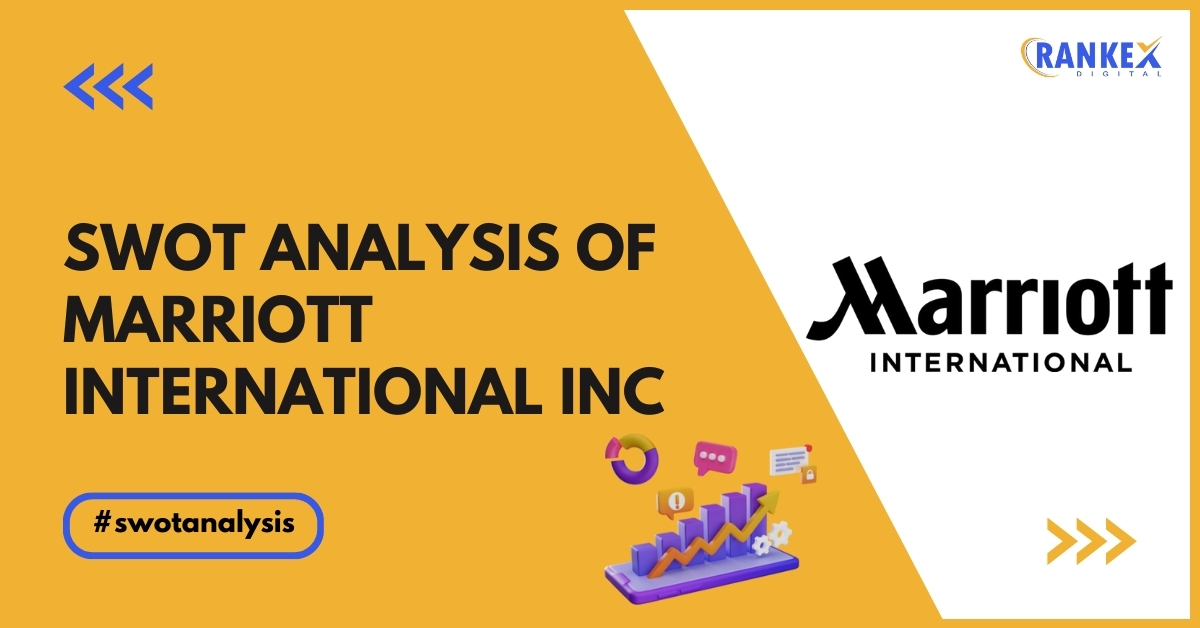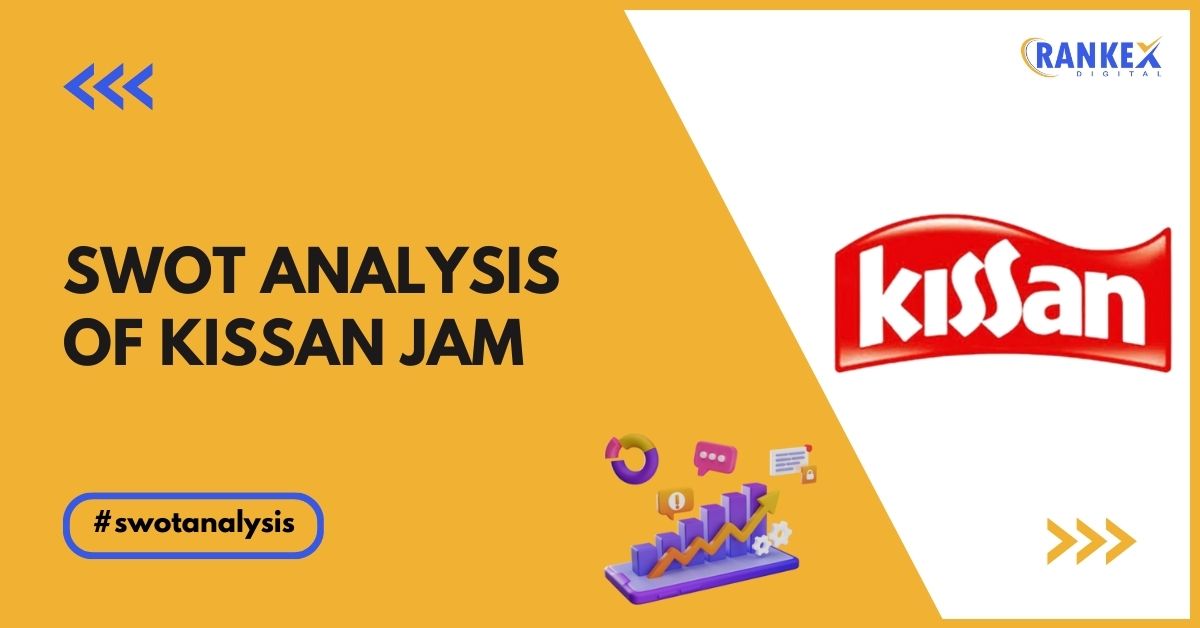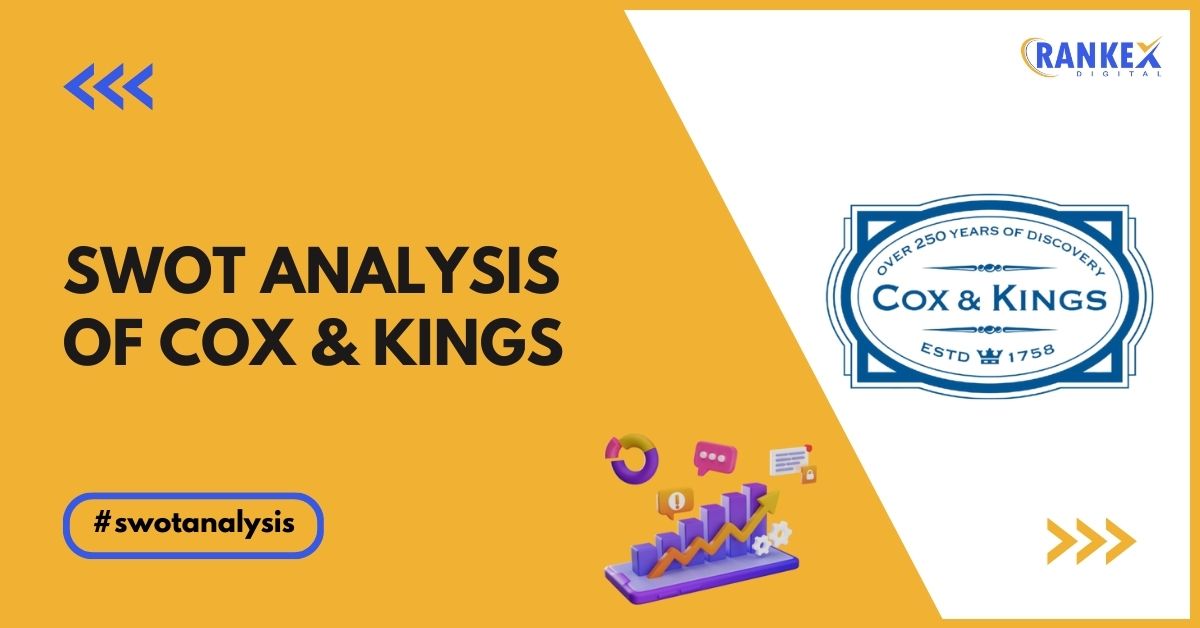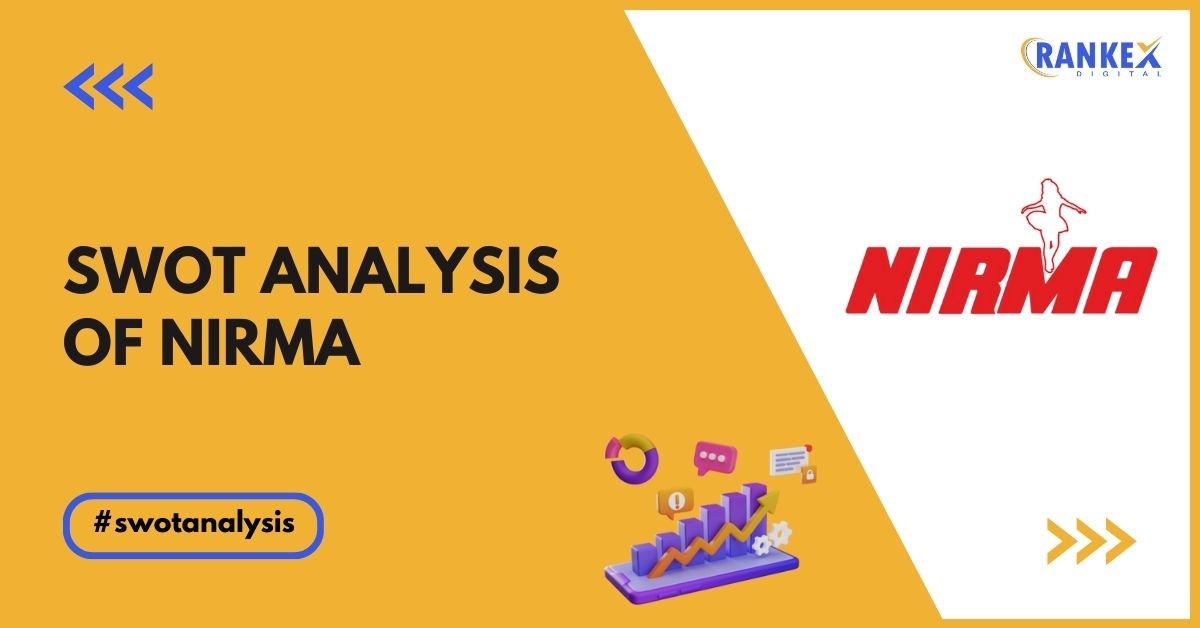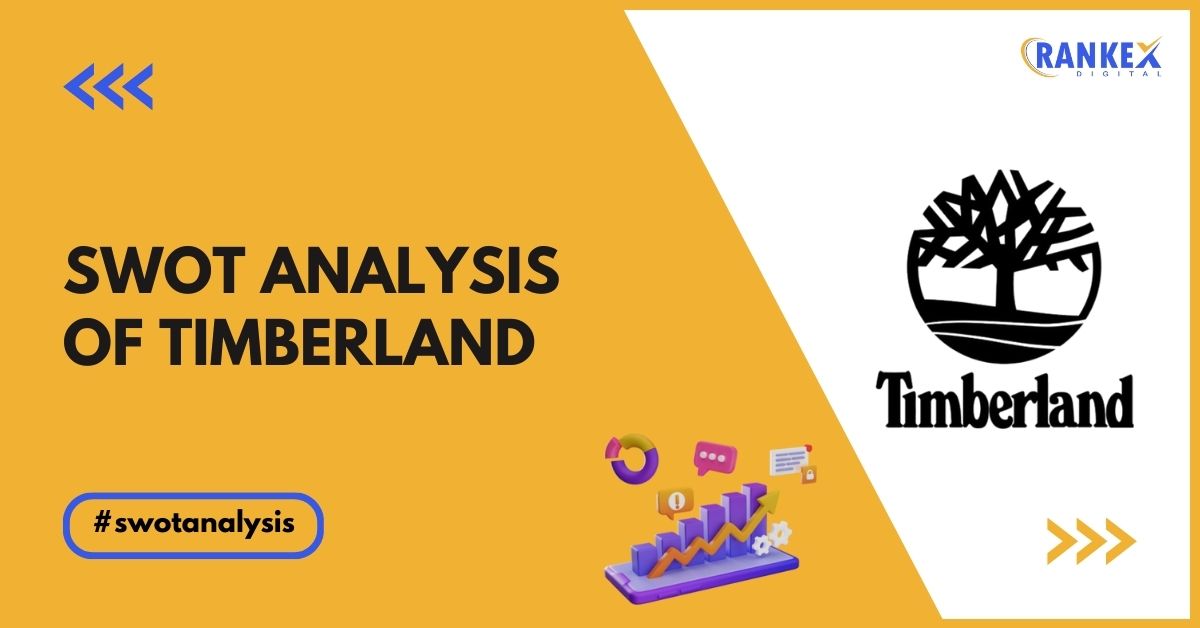Marriott International Inc., a global leader in the hospitality industry, is renowned for its portfolio of over 30 hotel brands, offering a range of services and accommodations across various market segments.
As one of the world’s largest hotel chains, Marriott has established a dominant position in the industry with its extensive footprint across 131 countries and territories.
To understand Marriott’s current position and strategize its future growth, a SWOT (Strengths, Weaknesses, Opportunities, and Threats) analysis is essential.
This article provides an in-depth SWOT analysis of Marriott International Inc., evaluating its key strengths, weaknesses, opportunities, and potential threats.
In this blog
Overview of Marriott International Inc.
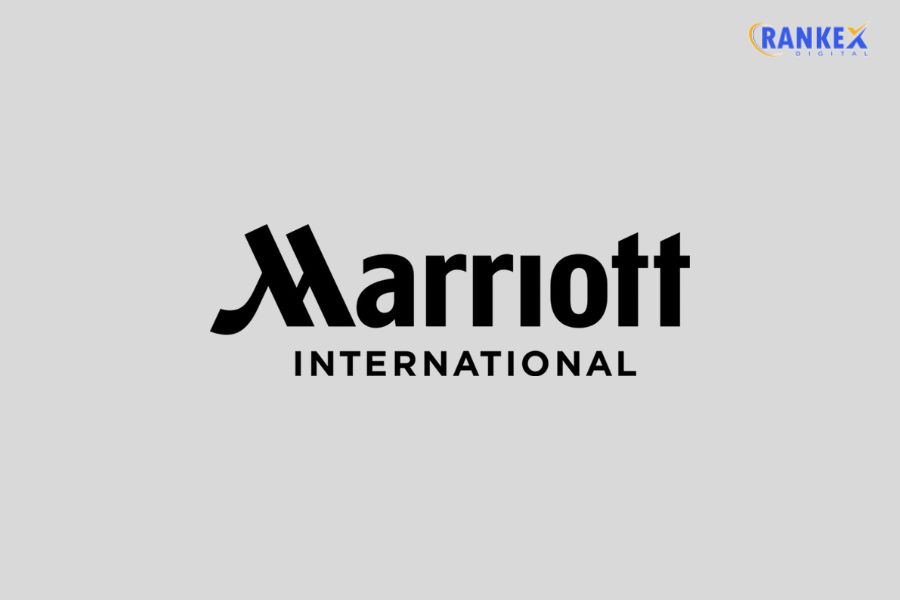
Marriott International was founded in 1927 by John Willard Marriott in Washington, D.C. Today, it operates under the leadership of CEO Anthony Capuano, with a global workforce that serves millions of guests annually.
Marriott is known for offering premium services through its vast network of hotels, ranging from luxury to budget accommodations. It also operates in the timeshare segment through its Marriott Vacation Club and offers other services such as business meeting venues and event management.
Quick Stats About Marriott International Inc.
| Attribute | Details |
|---|---|
| Founder | John Willard Marriott |
| Year Founded | 1927 |
| Origin | Washington, D.C., USA |
| No. of Employees | 174,000+ |
| CEO | Anthony Capuano |
| Company Type | Public |
| Market Cap | $52 Billion |
| Annual Revenue | $21 Billion |
| Net Profit | $3 Billion |
Current News of Marriott International Inc.
- Expansion into Emerging Markets: Marriott has been aggressively expanding its portfolio into emerging markets like Asia and Africa to capitalize on the growing demand for tourism and hospitality services.
- Sustainability Initiatives: Marriott is heavily investing in sustainability, focusing on reducing its carbon footprint and energy consumption across its hotels worldwide.
- Technology Advancements: Marriott has embraced technology with initiatives like mobile check-ins and AI-powered customer service, enhancing the guest experience.
SWOT Analysis of Marriott International Inc.
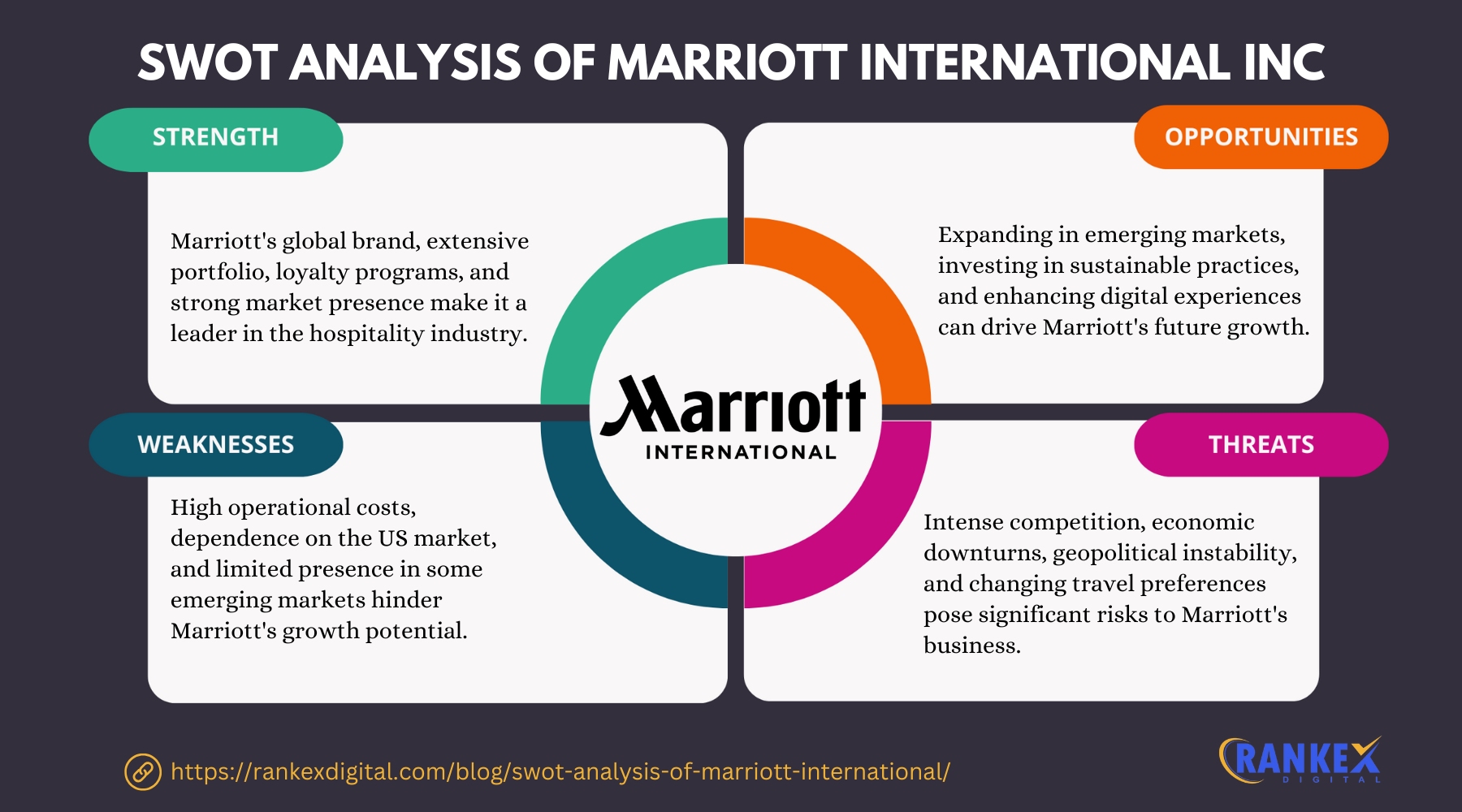
Strengths
- Extensive Global Reach: Marriott operates over 8,100 properties in more than 130 countries. This extensive reach allows the brand to cater to a diverse global customer base and capitalize on international travel. The company can also tap into local market dynamics and enjoy economies of scale.
- Strong Brand Portfolio: Marriott’s diverse portfolio includes both luxury brands like Ritz-Carlton and mid-range to budget offerings like Courtyard and Fairfield Inn. This variety allows Marriott to target different customer segments, from high-end travellers to those seeking more affordable options, which increases its market share.
- Loyal Customer Base: The Bonvoy loyalty program is one of the strongest in the industry, with millions of members who earn and redeem points. Loyalty programs like Bonvoy encourage repeat visits and build long-term customer relationships, giving Marriott a competitive edge over other hospitality chains.
- Financial Strength: Marriott has solid financial health, with consistent revenue from a wide range of sources, including room bookings, food and beverage services, and partnerships. This financial stability enables the company to continue investing in new properties and improving existing ones, which enhances its market position.
- Partnerships and Alliances: Marriott has strategic partnerships with airlines, travel agencies, credit card companies, and other brands. These partnerships help Marriott expand its customer base, enhance its offerings (e.g., through loyalty programs), and improve overall customer experiences, making it easier for guests to earn rewards or enjoy special privileges.
Weaknesses
- Dependence on the Travel Industry: Marriott’s performance is closely tied to the travel and tourism industry. Economic downturns, political instability, or global crises like the COVID-19 pandemic can lead to reduced travel, significantly affecting Marriott’s revenue.
- High Operational Costs: Marriott’s large global network comes with substantial costs. Maintaining and operating over 8,000 properties, especially in competitive or less profitable regions, can drain resources. High operational expenses could impact profitability, especially when revenues decline.
- Inconsistent Service Quality: With such a vast array of brands, from high-end to more budget-conscious hotels, ensuring consistent service quality across all properties can be challenging. Disparities in customer experiences could damage the brand’s overall reputation, leading to dissatisfaction and negative reviews.
- Complex Management Structure: Managing a wide variety of hotel brands and properties across diverse regions introduces operational challenges. Marriott’s large-scale global operations require complex management systems and decision-making processes, which can sometimes result in inefficiencies.
- Exposure to Geopolitical Risks: Operating in multiple countries means Marriott faces political, regulatory, and currency risks. Changes in government policies, taxation, or local regulations can impact Marriott’s profitability or even its ability to operate in certain markets.
Opportunities
- Expansion into Emerging Markets: Regions like China, India, and Africa are experiencing rapid economic growth, with increasing demand for travel and hospitality services. Marriott can capitalize on this by expanding its presence in these regions, catering to both domestic and international travellers.
- Sustainability Initiatives: As the global focus on environmental sustainability increases, Marriott can enhance its corporate reputation by adopting eco-friendly practices such as green building certifications, energy-efficient operations, and waste reduction. This would appeal to the growing segment of environmentally conscious travellers.
- Technological Advancements: The hospitality industry is embracing new technologies, such as mobile apps, smart room features, artificial intelligence for customer service, and enhanced booking systems. Marriott can leverage these advancements to improve guest experiences and streamline operations, making its offerings more attractive to tech-savvy travellers.
- Post-Pandemic Travel Recovery: As the world recovers from the pandemic, there is a surge in demand for both leisure and business travel. Marriott can capitalize on this recovery by offering flexible booking options, enhanced cleanliness standards, and appealing travel packages to attract guests who are eager to travel again.
- Diversification of Services: Marriott has the opportunity to diversify its offerings by expanding into vacation rentals, luxury cruises, or even private villas, tapping into new markets and customer preferences. This would help the company reduce its reliance on traditional hotel bookings.
Threats
- Intense Competition: Marriott faces fierce competition from other large hotel chains like Hilton, Hyatt, and Accor, as well as from disruptors like Airbnb, which have transformed the way people book accommodations. These competitors often offer more flexible or affordable options, which could lure customers away from traditional hotels.
- Economic Downturns: The hospitality industry is highly sensitive to economic cycles. During times of economic hardship, consumers may cut back on travel, which leads to reduced demand for hotel rooms. This can result in lower occupancy rates and declining revenue.
- Changing Consumer Preferences: Modern travellers are increasingly seeking personalized experiences, with preferences for home-sharing, unique travel experiences, and more budget-friendly options. Marriott must adapt to these changing preferences to avoid losing market share to newer, more flexible alternatives like Airbnb.
- Regulatory Challenges: New regulations on zoning, labour laws, health and safety standards, or environmental requirements could increase Marriott’s operational costs and hinder growth in certain markets. These regulatory changes could also add complexity to the company’s global operations.
- Security and Privacy Concerns: As Marriott handles a vast amount of customer data, it is susceptible to cybersecurity risks, including data breaches and hacking attempts. A significant security breach could damage Marriott’s reputation and lead to costly legal battles, as well as a loss of customer trust.
Top Competitors of Marriott International Inc.
- Hilton Worldwide
- Hyatt Hotels Corporation
- InterContinental Hotels Group (IHG)
- Accor Hotels
- Airbnb
Conclusion
The SWOT analysis of Marriott International Inc. highlights the company’s strengths, such as its vast global presence, strong brand portfolio, and loyal customer base. However, Marriott also faces challenges, including its dependence on the travel industry, high operational costs, and exposure to geopolitical risks.
Opportunities for Marriott lie in expanding into emerging markets, embracing sustainability, and leveraging technology to improve guest experiences. However, Marriott must remain vigilant of threats such as intense competition, economic fluctuations, and changing consumer preferences.
By capitalizing on its strengths, addressing its weaknesses, and staying ahead of industry trends, Marriott can continue to maintain its leadership position in the global hospitality market.
Frequently Asked Questions
What is Marriott International known for?
Marriott International is known for its vast portfolio of hotels, including luxury brands like Ritz-Carlton and budget options like Courtyard, catering to a wide range of customer needs worldwide.
What is Marriott’s loyalty program called?
Marriott’s loyalty program is called Marriott Bonvoy, which allows members to earn and redeem points for stays, flights, and other services.
How many properties does Marriott operate worldwide?
Marriott operates over 8,100 properties in more than 130 countries and territories.
What challenges does Marriott face in the hospitality industry?
Marriott faces challenges like intense competition from other hotel chains and platforms like Airbnb, high operational costs, and dependency on the travel industry’s economic health.
What opportunities exist for Marriott’s growth?
Marriott has opportunities to expand in emerging markets, invest in sustainability initiatives, and embrace new technologies to improve customer experiences and operational efficiency.

